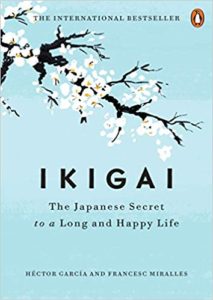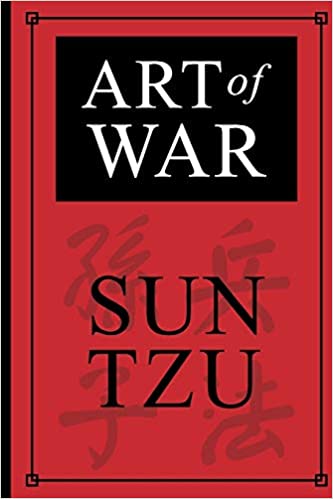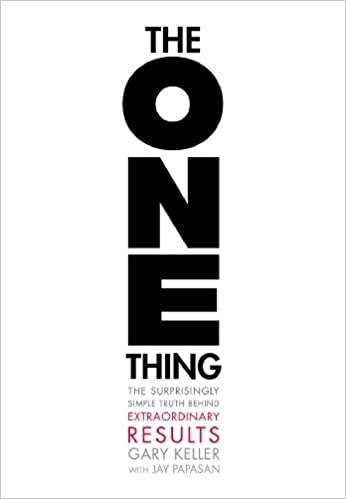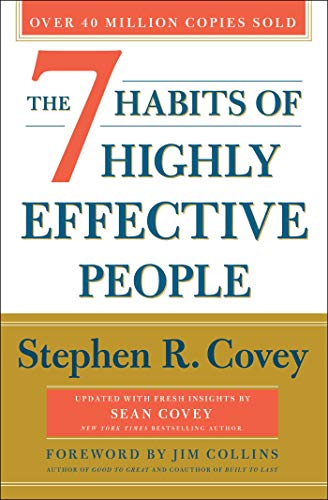Ikigai: The Japanese Secret to a Long and Happy Life

Book: Ikigai: The Japanese Secret to a Long and Happy Life
Authors: Héctor García & Francesc Miralles
Year Published: 2017
Book Summary
TOPLINE
The people of Japan believe that everyone has an Ikigai.
What is Ikigai? This Japanese word has various meanings – a reason to live, a sense of purpose and meaning, a feeling of well-being. Its perhaps best summed up as “a reason to jump out of bed each morning.”
Okinawa is one of the five ‘Blue Zones’ in the world, where people live some of the longest lives anywhere on the planet. The authors of Ikigai take us through the secrets of Okinawan’s longevity in this book.
How by slowing down the pace of living, leaving urgency behind, by nurturing friendships, through always keeping on moving, and by committing to your passions, you find your purpose. And through that mission, your Ikigai. Finding your Ikigai is the key to a happier and longer life.
BOOK SUMMARY
Hector Garcia and Francesc Miralles interviewed Japan’s centenarians and supercentenarians in the town of Ogimi, on the island of Okinawa. Ogimi is aptly nicknamed the “Village of Longevity.” It is home to some of the oldest people on the planet.
Their research revealed that there was something more potent than just clean air or good food at work. The authors discovered that among the centenarians of Ogimi, there was: “an uncommon joy.” This joy appears to flow from its inhabitants and guides them through the long and pleasurable lives.
The centenarians of Ogimi had a strong sense of Ikigai .
Ikigai is also a reason that people in Japan never really retire. The Japanese language doesn’t exactly have a word for retirement, that English does.
For the people of Ogimi, this confluence of their passion, profession, and community means that the day is full of meaning. This sense of mission also makes their day busy and purposeful, critical ingredients in finding happiness.
Interestingly, celebrations are a crucial part of life in Ogimi.
Habits of the Okinawans that help them nurture their Ikigai
A busy life without the hustle:
The older residents of Ogimi conduct each activity with attention and deliberation. This activity could be making tea or tending to the vegetable garden, which in fact, most of the older residents of Ogimi do.
Worry as little as possible. It helps you if you slow down and take your time to complete your task at hand. Being in a hurry doesn’t solve much. And Anxiety has negative health consequences.
Okinawans stay busy doing things that they enjoy without any hurry.
Community with friends:
Social life in Ogimi revolves around the community centers where residents gather to celebrate birthdays, local events, and simple pleasures like karaoke.
The centenarians of Ogimi advise that one should focus on enjoying life with the resources that you have and on stopping being worried about what might go wrong.
They recommend that a great way to enjoy a sense of community is to connect with everyone around you, including connecting with strangers. To smile often and to have an open heart towards everybody you meet will help you make positive connections.
The Okinawan principle of openness to making connections with people can be translated as an exhortation to treat everyone like a brother, even when you have never met them before.
This entreatment of friendship seems like a tautology, but your openness and friendliness will assist you in making many friendships throughout your life.
Okinawan centenarians stress equally upon the need to maintain family relationships. They say that as a grandparent, once you replace your worries with friends, you will find that your grandchildren too will come and visit you more often.
So, what about socializing as we know it in the west? Socializing at restaurants is limited and at bars non-existent as Ogimi has no bars!
Keep moving
The residents of Ogimi, no matter how old, are physically active.
Exercising to the older Okinawans does not mean running or workouts at a gym. Instead, their longevity and good health come from finding simple, consistent ways to keep move more through the day.
They would go for a walk around the neighborhood, or a walk with friends to the seaside.
Time spent attending to their garden, or even singing karaoke are just some of the simple ways that the people of Ogimi maintain their habit of being on the move.
Their daily routines help them to be on the move as well. Whether it is tending to their garden patches or exercising with gentle intensity to the “Radio Taiso.” Taiso is a radio service that instructs the Japanese on how to perform gentle exercises. Almost everyone follows along. Radio Taiso has been in business since 1928 – itself practically a centenarian!
To watch a small routine of exercises from Radio Taiso on YouTube, please click here.
Eat healthy foods and stop eating before you feel full.
The diet in Okinawa is more vegetarian and is generally low in animal products. The Okinawans diet is rich in nutrient-dense and low-calorie foods like seaweed, a variety of vegetables, miso, and green tea. Their diet is not just low in animal products; its also low in sugar and salt.
Grains are the foundation of their diet. Like the rest of Japan, people in Ogimi eat white rice every day, sometimes adding noodles.
Their source of animal protein is generally just fish, which they eat on average three times a week.
They also practice the Japanese concept of “hara hachi bu,” which means stop eating before your belly is full.
Commune with Nature
Okinawans are blessed by nature too. Residents of Ogimi can walk in lush greenery as well as walk to the sea. A combination of walks through clean air in greenery and of the sea contributes to the feeling of well being.
The people of Ogimi exemplify the Japanese skill of bringing nature and technology together. A union of the two, rather than one versus the other.
RECOMMENDATION
Ikigai is a book full of insights and easy to implement ideas for longevity. I would highly recommend this book to people right across the board.
To the callow 25-year-old who doesn’t believe that he needs this advice! To the 35-year-old in a corporate career who doesn’t know if he wants to spend another 30 years in that career. To the 65-year-old who has just retired and who is trying to decide how to spend his retired life.
In essence, this book has something for everyone who is looking for a primer on how to slow down, enjoy life, and find fulfillment and longevity.




